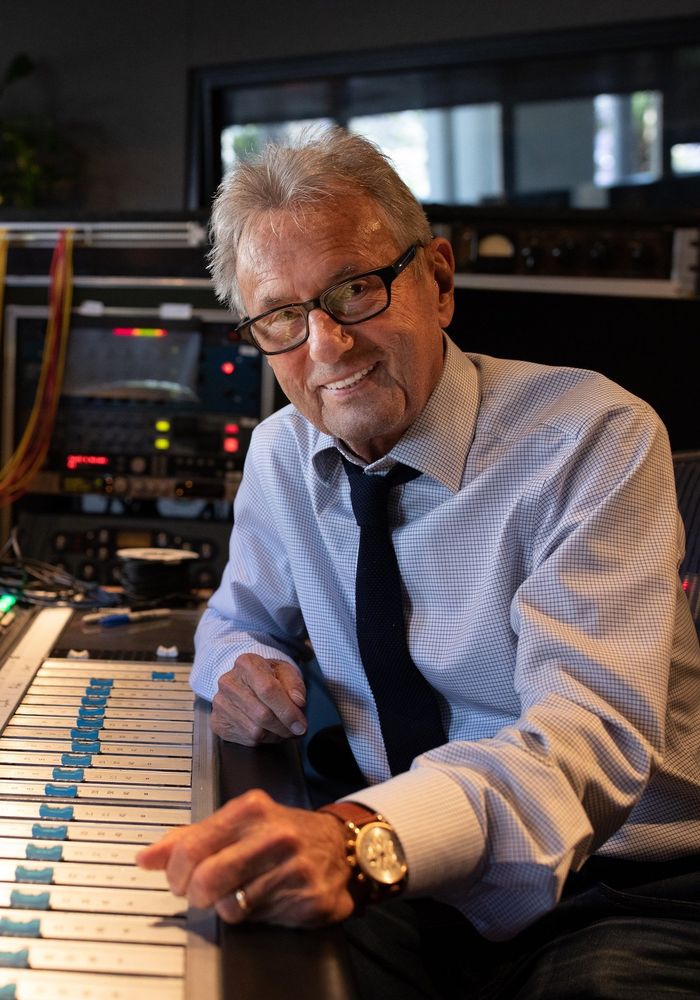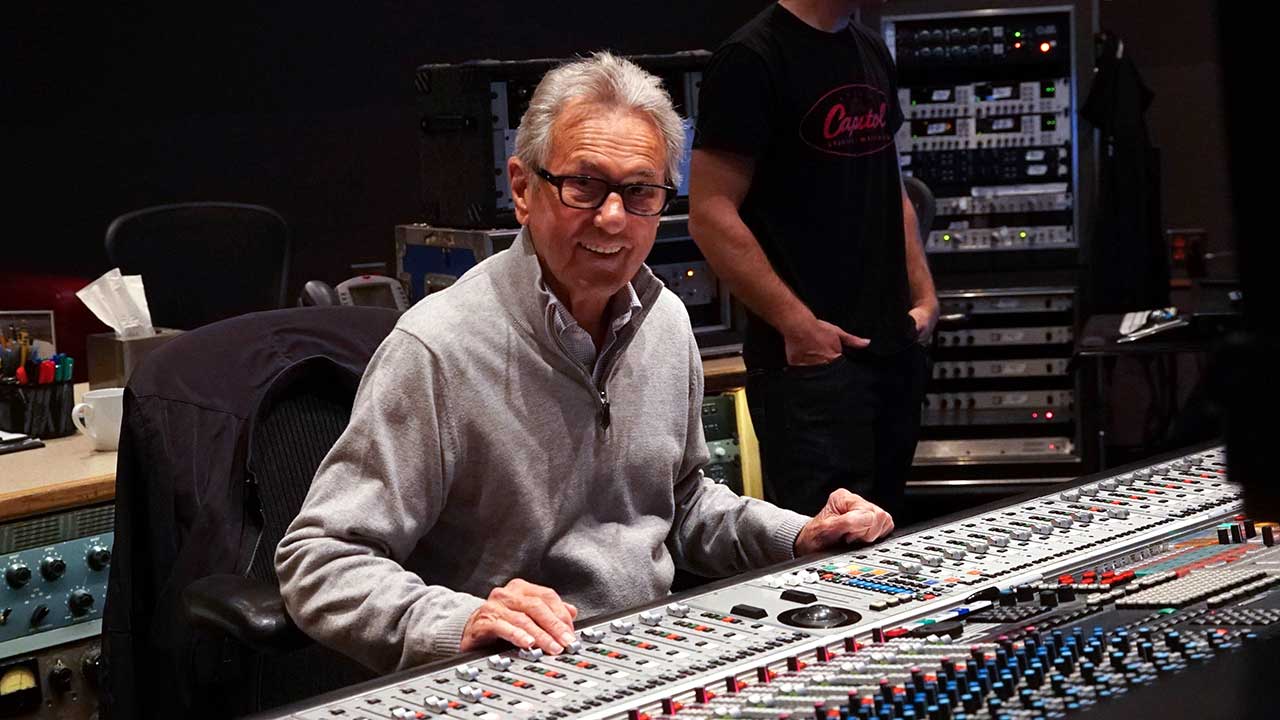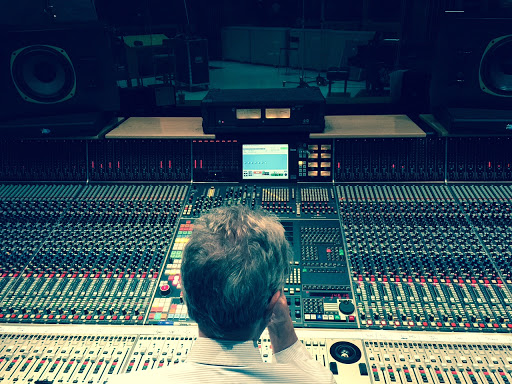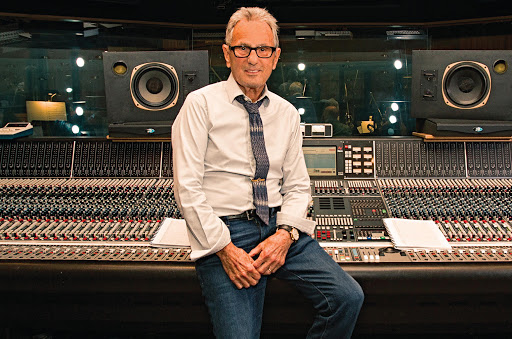Al Schmitt, the engineer behind countless hit records, has passed away aged 91.
Headliner reflects on the time we met up with the 23-time Grammy Award-winning recording engineer and record producer in 2019 who shared his memories of working 12 hours straight with Elvis, supplying Sinatra with Tootsie Rolls, having dinner with the Mafia, and what he credits with saving his life.
“It’s not every day you get to meet a music legend,” I think as I squeeze my way through a bustling music event to sit down with Grammy Award-winning recording engineer and record producer, Al Schmitt. A 23-time Grammy Award-winner. Regarded as one of the finest record producers in the world, ironically Al was desensitised from meeting legends himself from a very early age.
“When I was a kid at my uncle’s studio I was around all these celebrities, so when I got older and was around celebrities it wasn’t really a big deal,” he begins humbly.
“They were just like normal people to me. And as I kid they were all messing my hair and joking with me. People like Orson Welles would want to know if I believed in Martians, so I was never really impressed by anybody. Not even Elvis when I worked with him. I treated them like a normal human beings, not like they’re up on some pedestal. And I think that makes a big difference because I act as if I’m on par with them, and they feel the same way.”
You know that anyone that casually drops the names Orson Welles and Elvis into a few short sentences has some cool stories, and boy Al does not disappoint.
The Brooklyn-born producer has lost no love for the craft he has been honing since his teenage years, and can still be found energetically working on new projects within the legendary Capitol Studios in California.
So where to start a conversation with a man with five decades worth of Grammy hits under his belt? A personal connection seems fitting.
Back in 1994 I was in my early 20s and working as an engineer’s assistant for Dave Grusin at GRP Records. After he retired and sold the label, MCA brought in legendary producer Tommy Lipuma to run the place and I got to hang around him while he made records with his friends, who also happened to be the best in the business.
I don’t have nearly as many names to drop as the man before me today, but people like Klaus Ogerman, David Foster, Johnny Mandel, George Benson and Dr. John each had a profound effect on me. However my fondest memories are of one of the kindest, generous and most talented engineers in the business, the very person I have come to interview today.






